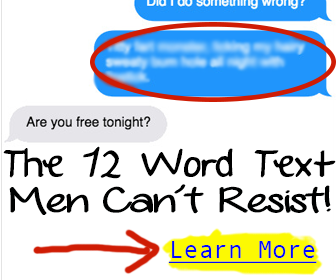Introduction:
Effective communication is the foundation of any healthy and successful relationship. Whether it’s a romantic partnership, a friendship, or a professional relationship, communication plays a crucial role in building trust, resolving conflicts, and fostering intimacy. However, many relationships suffer from communication breakdowns that can lead to misunderstandings, misinterpretations, and unnecessary conflicts. Fortunately, there are several ways to improve communication in a relationship and strengthen the bond between individuals. In this post, we will explore practical tips on how to enhance communication skills, listen actively, express emotions effectively, and create an environment of open and honest communication.
Table of Contents
1. Develop Active Listening Skills:
Listening is a key component of effective communication. It involves not only hearing the words but also understanding the message being conveyed. To improve communication in a relationship, it is essential to develop active listening skills. This means giving your full attention to the speaker, avoiding interruptions, and refraining from formulating responses while the other person is speaking. Show empathy and understanding by nodding, maintaining eye contact, and asking clarifying questions. Reflect back on what you have heard to ensure that you have understood correctly. By being a good listener, you show respect and consideration for the other person’s perspective, which can enhance communication and build trust.
2. Express Emotions Clearly:
Emotions are a natural part of human interaction, and expressing them clearly can significantly impact communication in relationships. It is important to communicate your feelings openly and honestly, using “I” statements instead of “you” statements. For example, instead of saying, “You never listen to me,” you can say, “I feel unheard when I try to express my thoughts.” Be specific about your emotions and avoid blaming or criticizing the other person. Creating a safe space for expressing emotions can foster open and honest communication, leading to a deeper understanding and connection in the relationship.


3. Practice Non-Verbal Communication:
Communication is not just about words; non-verbal cues also play a vital role in conveying messages. Facial expressions, body language, and gestures can sometimes speak louder than words. Pay attention to non-verbal cues in your relationship, and be mindful of your own non-verbal communication. Maintain eye contact, smile, nod, and use appropriate gestures to convey warmth, openness, and understanding. Avoid negative body language such as crossing arms or avoiding eye contact, as it can create barriers to effective communication. Being aware of non-verbal communication can improve understanding and foster a positive atmosphere in relationships.
4. Clarify Expectations:
Miscommunication often arises from unspoken expectations. It is important to clarify expectations in a relationship to avoid misunderstandings. Be clear and specific about what you expect from the other person and what you are willing to offer in return. Avoid assumptions and be open to discussing and renegotiating expectations as the relationship evolves. This can prevent disappointments, conflicts, and misinterpretations, leading to improved communication and relationship satisfaction.
5. Foster Open and Honest Communication:
Creating an environment of open and honest communication is essential for improving relationships. Encourage open dialogue, and be willing to share your thoughts, concerns, and feelings without fear of judgment or criticism. Be receptive to feedback and actively seek to understand the other person’s perspective. Avoid defensiveness or dismissiveness, and strive to find common ground and solutions together. Building a culture of open and honest communication can foster trust, intimacy, and mutual respect in relationships.


Conclusion:
Improving communication in a relationship is vital for building healthy and successful connections. By developing active listening skills, expressing emotions clearly, practicing non-verbal communication, clarifying expectations, and fostering open and honest communication, individuals can enhance their relationship dynamics. Effective communication promotes understanding, trust, and intimacy, and helps to resolve conflicts and prevent misunderstandings. By implementing these tips, individuals can create a strong foundation for effective communication in their relationships, leading to improved connection, satisfaction, and overall relationship health.
Remember that effective communication requires ongoing effort and practice. It may not always be easy, and there may be challenges along the way. However, the benefits of improved communication in relationships are well worth the effort. It can lead to better understanding, deeper intimacy, and stronger bonds with your partner, friends, family members, or colleagues.


In conclusion, communication is the backbone of any healthy relationship. By developing active listening skills, expressing emotions clearly, practicing non-verbal communication, clarifying expectations, and fostering open and honest communication, you can create a positive communication environment in your relationships. Remember to be patient, compassionate, and understanding with yourself and others as you work towards improving communication. With time and effort, you can create meaningful connections and enjoy healthier relationships in all aspects of your life. So, start today and prioritize effective communication for a more fulfilling and satisfying relationship experience.



